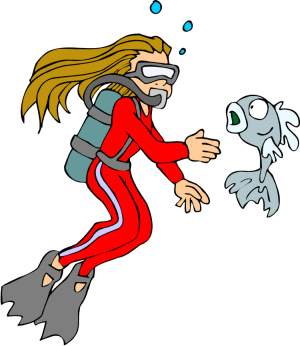 |
| Science isn't just people in white lab coats |
Especially at a young age, the message should be that everyone should learn science, regardless of whether they think they want to be an elementary school teacher or an astrophysicist. This is, by the way, the same concern I have for many "girls in STEM" programs - that they send the message to girls that it's abnormal to be into STEM subjects.
But wait, you say - we have specialists teaching music, art, and physical education, and those aren't just for "nerds." True, but it is clear that those subjects are not part of the core curriculum. And I think even as a child I subconsciously understood that those weren't really things I had to learn, unlike what we did in the normal classroom. The fact that my teacher may or may not have been good at music, art, or sports probably did send the message that it was OK for me also not to be good at those things; given my lack of artistic abilities, that was probably good for my self esteem. On the other hand, I don't think we should be giving such an easy-out for science.
 But I do think there is a place for science specialists to enhance the regular curriculum. I remember in 3rd or 4th grade, we had a scientist who was the parent of a kid in another class come in once every two weeks for a special science lesson. These were highly interactive, visual, and fun. We built electro-magnets, saw chemical reactions, and had other demonstrations of the type you'd see on Mr. Wizard's World (pictured left). If the purpose of the science specialist is to make science more fun, rather than to teach the core science curriculum, then I think it's a great idea.
But I do think there is a place for science specialists to enhance the regular curriculum. I remember in 3rd or 4th grade, we had a scientist who was the parent of a kid in another class come in once every two weeks for a special science lesson. These were highly interactive, visual, and fun. We built electro-magnets, saw chemical reactions, and had other demonstrations of the type you'd see on Mr. Wizard's World (pictured left). If the purpose of the science specialist is to make science more fun, rather than to teach the core science curriculum, then I think it's a great idea.
Thanks for this post, Alison, and for the pingback to my blog! Sorry it has taken me so long to comment. I love the idea of having a science specialist "enhance" the curriculum, and there are a number of ways to do this that I've seen be quite effective. In Australia we are lucky enough to have the Scientists in Schools project, which "matches" scientists and teachers to work together to enhance learning, in whatever way they feel is helpful. So it might be that the scientist simply works with the teacher to develop their content knowledge, or help them plan for learning activities, or it might be that the scientist works with the children in the classroom in some way, or that they run a science club or similar. That's just three examples; other examples are here: http://www.scientistsinschools.edu.au/
ReplyDeleteAnother way is to have a specialist coach who works with the teachers in the school to develop curriculum, lesson plans, or activities. They might also provide professional learning opportunities for teachers. They may or may not work directly with classes, obviously my preference is that they work with teachers.
I wonder if any scientists or engineers reading this blog would like to volunteer at their local school to help out?
Thanks again!